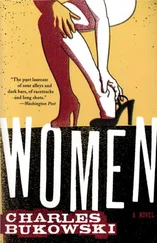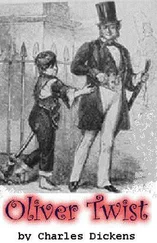Acknowledging neither the nurses nor the other doctors in the room, he focused his attention on Alice, smiling in a manner neither welcoming nor insincere, his handshake strong without being warm. At the end of his lab coat’s sleeve, peeking out from beneath an ivory-white French cuff, half of a chunky, high-end titanium watch was conspicuous. The doctor moved toward Oliver and similarly introduced himself. He completed the formality of washing his hands and stepped toward the office desk, stiffly taking in the dormant baby stroller, the folding chair overflowing with coats and shoulder bags and hanging sweater arms and that single, tiny yellow unicorn.
Adjacent to that pile, perched on what Alice realized was the doctor’s prize — the sought-after stool — Oliver was using his toes for leverage, spinning himself and the little one in slow half circles, the child gurgling, holding her blanky, sucking with great affection on her pacifier; now aware of attention on her, she turned away from her father, checked out the nice new man in the lab coat.
Howard Eisenstatt, MD, once more extended those thin lips, revealing that tight smile. Scooting himself upward, he sat on the edge of the desk, stretched his pressed slacks diagonally out in front of him, revealing thin fine socks, perfectly matching his pants’ gray shade. A glance toward his clipboard; Eisenstatt removed a ballpoint from the chest pocket of his lab coat. Repeated pressing didn’t get the pen going. Licking the end was no help. The doctor looked down; fleshy folds of a double chin revealed themselves. Eisenstatt blinked at his pen, as if blinking were an expression of disappointment, as if expressing disappointment to a pen would somehow motivate the ink.
“We couldn’t get a sitter,” Alice said.
She sat, rigid, against the raised slab of the examination table, her left arm hanging straight down between dangling legs. A catheter was plugged in the soft of her elbow, and layers of clear plastic tubing were taped to her forearm. A quiet, head-scarfed woman down the hall was employed solely for the brutally tedious task of starting IV lines and getting blood from cancer patients, and she’d needed three sticks in order to penetrate Alice’s vein. The number remained unsettling to Alice for reasons she would not allow herself to think about ( the vein had been found, onward ). The catheter had been installed, Fatima had explained, “in case doctors want plasma transfusion. Line ready to go. No problem.”
Watching the doctor mess with his pen, Alice felt the urge to swing her feet, kick up her hot pink socks. Her boots were off so that a second nurse — Requita? — had been able to get an accurate weight. Her socks remained on so Alice’s bare feet wouldn’t come into contact with anything germish. Besides, the exam room was chilly.
“Are you okay?” asked Eisenstatt. “I know it’s been a long day. Maybe some water?”
A rustling behind them, Requita began searching for a paper cup. Now the nurse left the room. At the same time a new woman entered, middle-aged, frizzy-haired Hispanic, unfortunately jammed into a tightly fitting, generic-looking blouse and slack set. She handed Eisenstatt a functional and spiffy-looking felt-tipped pen from her own overcrowded breast pocket. Alice double-checked the laminated hospital ID dangling from that bright purple strap — Dantelle? Yes, Dantelle. She’d come in before. A nurse-practitioner, a kind of cross between doctor and nurse. She’d gone over Alice’s history, sympathized with Alice about childcare, hadn’t been condescending or overboard.
“Water would be wonderful,” Alice said. “Thank you, Doctor.”
Near the elevated cupboards and shelves in the back of the room the final member of this gathering lingered: an attractive Indian woman, almost as tall as Eisenstatt, but willowy in a manner common to Alice’s world, with lustrous long hair, hot-ironed to fashionable straightness, and cords in her neck from too much working out. Dr. Bhakti was a visiting fellow, training to specialize in cancer treatment. She’d been in earlier, introducing herself and going over cursory bone marrow transplant information. She’d also sized up Alice’s outfit. Her glance might have been innocuous; still, Alice had noticed.
At the moment, Bhakti was sitting on the edge of a counter, filing her nails. Her boots were the second pair to capture Alice’s fancy this morning — confirmation that someone needed to get herself new boots.
“We straightened out the problem with your slides.” Eisenstatt read with medium interest from Alice’s file. “So that’s progress.” He flipped a page on the clipboard. “Everything indicates Dartmouth-Hitchcock did an excellent job. Getting you here to this stage was no small achievement. But there are still a few matters that I’d like to review. Can we go back and begin with the first symptoms, before you—”
“The nurse didn’t write that down?” Oliver asked. “None of the three other people who took her history got what you want?”
“I don’t mean to be difficult,” Alice said. “We’re grateful to be here. But we seem to keep going over information your staff asked me ages ago.”
Eisenstatt tipped his forehead, the nineteenth-century gentleman conceding a thorny point. “It’s maddening. You’re going to get a lot of it. Standard medical procedure. We go over things repeatedly. This is our thinking: it’s possible you’ll remember something that deviates from what the nurse heard. You might add a detail that adds to Dr. Bhakti’s understanding of this case. Each time a staff member or doctor hears your story, it gives us a chance to consult with one another, and hear everything fresh in our own ears. It’s an inconvenience for you, I know—”
Dating back to the night of her admission to Dartmouth-Hitchcock, continuing all the way through the morning of her release, Alice had tracked her blood cell counts; she’d made it her business to memorize the names of the nurses, personalize herself to the nursing assistants. Here at Whitman, for the umpteenth time, she was more than capable of verifying that, upon her admittance to DHMC, she’d been given two drugs, Zithromax and ceftazidime, for her pneumonia. (“Lower left lobe,” Alice remembered. “I’m fairly sure that’s what they told me about the pneumonia.”) She had no problem naming which antibiotics she’d been given upon her admission (acyclovir, and also some sort of azole antifungal), or “cytarabine,” the first of her induction chemotherapy drugs, or following up with “the other one. The red drip. Dana Rubenson.”
“ Daunorubicin,” the cancer fellow corrected.
“Dana Rubenson makes it easy to remember,” Alice said.
She was counting the days until all this was over and Tilda and a bunch of other girlfriends formed a shopping mob with Alice and made it their personal mission to liberate every sexy pair of boots being held in the clutches of SoHo’s boutiques. Accepting a paper cup—“Thank you, Dantelle”—Alice let herself soak in the relief of sipping lukewarm tap water. She allowed herself to enjoy watching visiting fellow Bhakti retreat back into her little corner.
The moment she answered the next question, Alice knew letting her guard down had been a mistake; she’d confused desonide — the ointment for the facial rash she’d gotten as a side effect of a platelet infusion — with triamcinolone — the ointment she’d been given for her postchemo chest rash.
By then Dr. Bhakti was alert, the nurse-practitioner was having her say, Eisenstatt, too — everyone correcting her.
“It can get confusing sometimes,” Dantelle said.
“You’re doing great”—Bhakti’s voice dripped with honey—“remembering all this.”
Читать дальше











